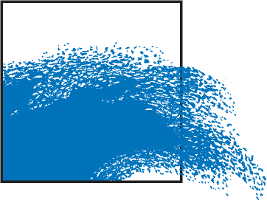Coast guard
Since we extended our jurisdiction at sea to 70 km from the coast in the late 1990s Belgium has been responsible for a marine area of some 3,600 km² (Territorial Sea and Exclusive Economic Zone), commonly known as the ‘eleventh province’. Our part of the North Sea may seem tiny compared to the continental mainland or the waters of the other coastal states, but it is known as one of the busiest shipping areas in the world and has been home in recent years to a number of considerable economic and industrial developments. Our marine area is also of high ecological value as a unique transitional area between the southern North Sea and the Channel.
The extension of Belgian maritime jurisdiction called for a structure to enable cooperation between the competent government authorities. This cooperative structure, the Belgian Coast Guard Service, was set up 2003-2005 and accommodates operational coordination and mutual consultations between the Flemish and federal government maritime services. Thus, the Coast Guard Service helps ensure an efficient exercise of the government's maritime tasks and powers in the areas of shipping safety, the rescue of human lives at sea and the supervision of human activities in the contexts of law enforcement and protection of the marine environment, etc.
Competency in all these activities rests with no fewer than 17 (Flemish and federal) government authorities, plus the province of West Flanders. MUMM, a representative of federal Science Policy in the Belgian Coast Guard Service, operates in several areas. Most, but not all, of these areas relate to the environment. Through its cooperation with the Belgian Coast Guard Service, MUMM is responsible for or contributes towards:
- Provision of regular aerial supervision over the North sea for the Coast Guard Service as part of the general enforcement of law and order at sea, whereby MUMM's aerial supervision is no longer confined to 'simple' pollution monitoring but is gradually diversifying towards a broader, maritime surveillance framework;
- Reporting conspicuous observations or suspicious activity at sea to the Coast Guard Centre services (Maritime Information Database /MIK and Maritime Rescue and Coordination Centre /MRCC), which are tasked with ensuring fast and effective communication from units at sea to the competent land-based government authorities;
- Participation in special Coast Guard Service enforcement operations at sea and pollution fighting exercises under the contingency plan for the North Sea;
- Organisation of consultations between Coast Guard partners in cases of relevance to the environment, such as offshore wind farm construction and operation;
- Participation in working groups to draft the maritime emergency plan (ANIP North Sea and operation sub plans), and participation in crisis management in the case of an emergency at sea, e.g. by giving specific environmental advice in the case of accidental marine pollution, or activation of scientific expertise and resources to evaluate an incident or monitor its impact;
- Provision of advanced mathematical models to predict with a high degree of accuracy the spread and behaviour of accidental or illegal see pollutants, the path of a floating object or the intensity of a storm surge.



